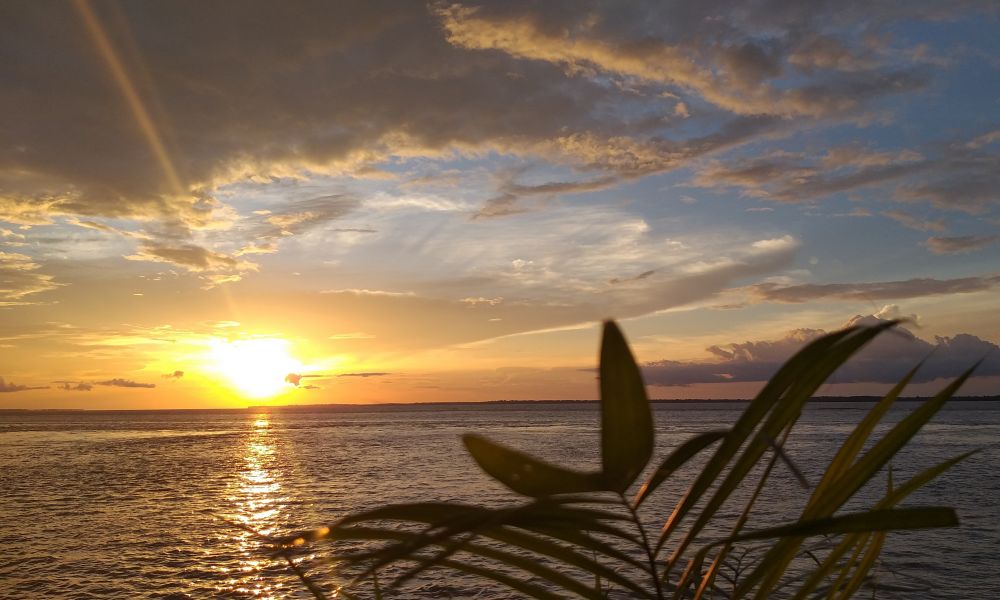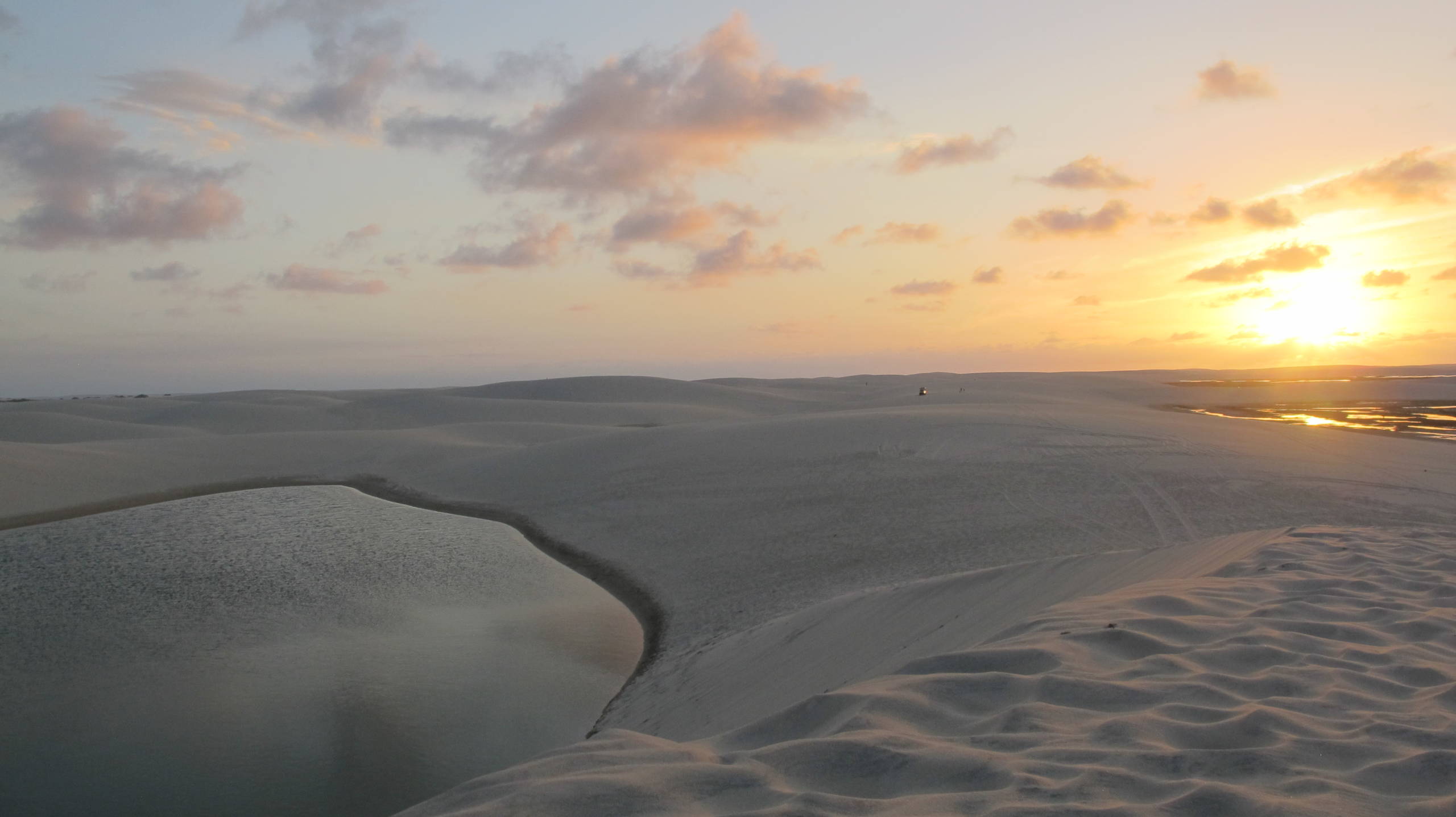A few months ago, we had the idea to start a series of interviews with our local guides and partners in different Brazilian destinations. After all, although we have been to most of these destinations, nothing compares to the knowledge and experiences of the people who live and work with travel on the ground.
And so, on my first trip to Ubatuba, I decided to finally get this project off the ground and arranged a meetup with our local partner there, Potiguara do Lago. Poti, as he is known, was born in Ubatuba 26 years ago, and as he said, has been involved in tourism “ever since.” His parents have owned a beach kiosk on Praia Grande, one of the larger beaches in town, for 40 years, so his entire life! This means, Poti is used to be around so many tourists. As time went by, he also worked at the family restaurant, earned degrees in Business and Hospitality, worked in travel agencies, obtained a tour guide license, and has lived in Australia (where he learned to speak English). Back in Ubatuba, he worked at the town’s tourism board, and 2 years ago, after leaving the job, he started his own incoming travel agency, Ubatuba Turismo.
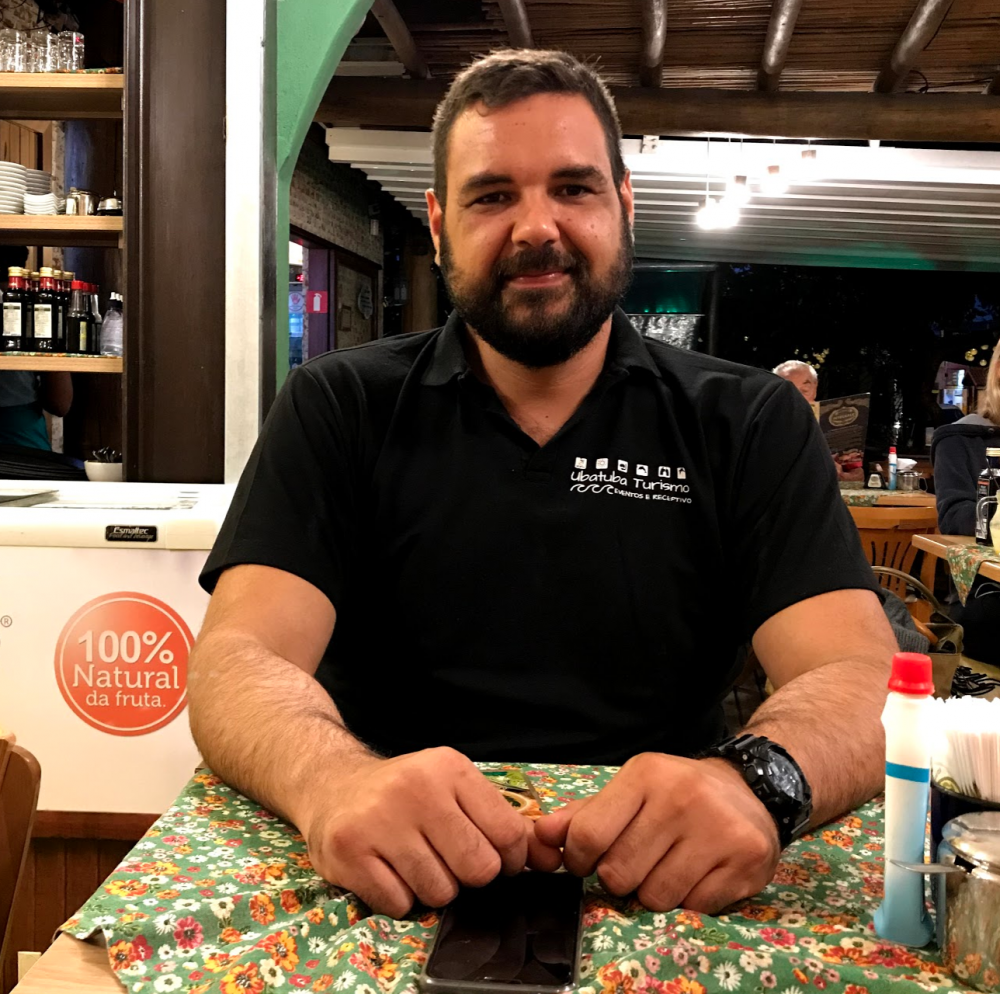
We have been working with Poti for almost 2 years, and love the quality of the top notch service he and his staff provide. In addition to all his knowledge, the attention he gives to every trip request (no matter how odd they can get!) is certainly what sets him apart from the various other local agencies. He always makes sure to understand the desires and needs of the client before sending a quote and suggesting tours and accommodations for them.
The municipality of Ubatuba has more than 100 beaches, and according to Poti, in the state of São Paulo, it is only second to the capital city of São Paulo, with the highest number of hotel beds (approximately 18.000).
With beaches and accommodations for all tastes and budgets, you really need to understand the client preferences, in order to try and meet their expectations. And that was the first topic of our conversation, where we also talked about the history and culture of the city, sea turtles and more. Check out a bit of our chat below!
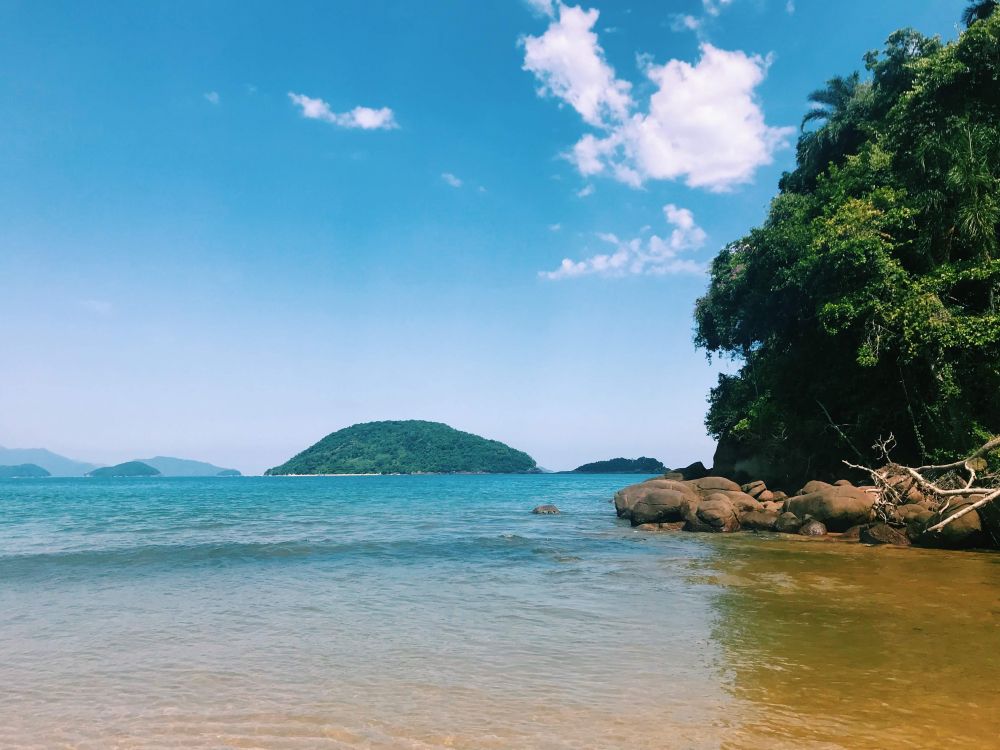
In your opinion, what’s the best beach in Ubatuba?
My favorite beach here is the Puruba beach. It is a wonderful place, where the river meets the sea! But it is very difficult to choose the best beach because what is best for me, may not please other people. Puruba Beach, for example, has no infrastructure, and the access to it is not as easy as other beaches on the north coast, which makes it a more isolated beach. I think this is great, but a lot of people aren’t as enchanted, and prefer beaches with kiosks and vendors, or more popular beaches, such as Praia Grande, Praia do Lázaro, or Praia da Almada. So, before suggesting a beach I always try to gauge what the person’s expectation is.
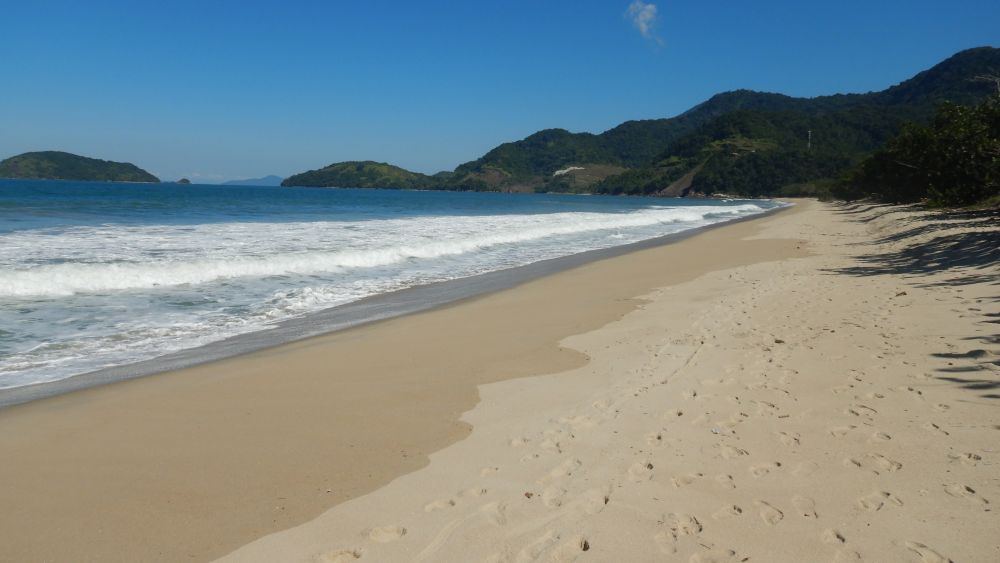
Where do you recommend staying in Ubatuba?
I usually suggest staying in Itaguá (the touristic center of the city), which is where you will find most of the options in terms of restaurants, shops, etc. Although the best beaches in the city are a little further from the center, it is much easier to get to them during the day, than staying near the beach and having to travel in the evening to go to the restaurants and bars. But again, it all depends on the client’s preferences.
Ubatuba is known mainly for its beaches and ecotourism and few people come here with the intention of learning more about the local history and culture. For this type of tourism, they usually go the the neighbor Paraty, right?
Ubatuba is a 381 year old city and was also an important part of the history of Brazil. If you read more about the city, you will see that, like Paraty, its history is also directly linked to the three major economic cycles in Brazil: gold, coffee and sugar cane. I love telling travelers about the history of the city and also like to take them to Quilombola (an Afro-Brazilian resident of quilombo settlements first established by escaped slaves in Brazil) and Caiçara (traditional inhabitants of the coastal regions of southeast Brazil) communities, when they ask for tours focused on culture and local history. Actually, the first customer that Viare sent our way, got to experience an unexpected fandango caiçara (a typical community dance) during our tour. We stopped to watch for a while, and she loved it! She also got the chance to try the Azul Marinho, a typical Caiçara dish.
That’s cool, I’ve never heard of this dish. What’s in it?
The dish is basically a fish stew, made with green bananas. When cooked, the green banana gets very soft and resembles

I discovered the reason Ubatuba is also known as Ubachuva (chuva means rain in Portuguese, we had 3 days of intense rains during the 5 days we spent there). What do you recommend for a rainy day in Ubatuba?
Yes, this is a region that rains a lot and it is of extreme importance to preserve the rainforest here. It’s called a rainforest for a reason, right? But for rainy days, I always recommend the aquarium and the Tamar Project! And also to visit some of the many restaurants or bars in the city.
Speaking of the Tamar Project, last year I had the chance to visit the project’s facility at Praia do Forte in Bahia during the sea turtles’ breeding season, and I had the opportunity to see their release into the sea, which such a very beautiful moment! Does this also happen here in Ubatuba?
No, because Ubatuba is not a nesting site. What happens is that the turtles born in Espirito Santo and in the Northeast, or other warmer regions of the Atlantic Ocean, come to the area surrounding Ubatuba to feed, and then continue their journey. So the Tamar Project here has more of a conservation and rescue role. In fact, the other day, during a tour with a group near the lighthouse (Cruzeiro Lighthouse), we saw a man accidentally fish a turtle. Immediately, another guide and I went to help get her out of the water, and called the staff at Tamar. Here all the guides already have their contact information. They arrived quickly, rescued the turtle, and took her to the rehabilitation center. The work they do here is very important!
And what are the best spots to see the turtles here in Ubatuba?
It is very easy to spot them in their natural habitat here. If you take a walk in the afternoon at Itaguá beach, you can see a few in the water. But for those who want to see them close up, there are several snorkelling spots here in the region, such as near Ilha das Couves (Couves Island).
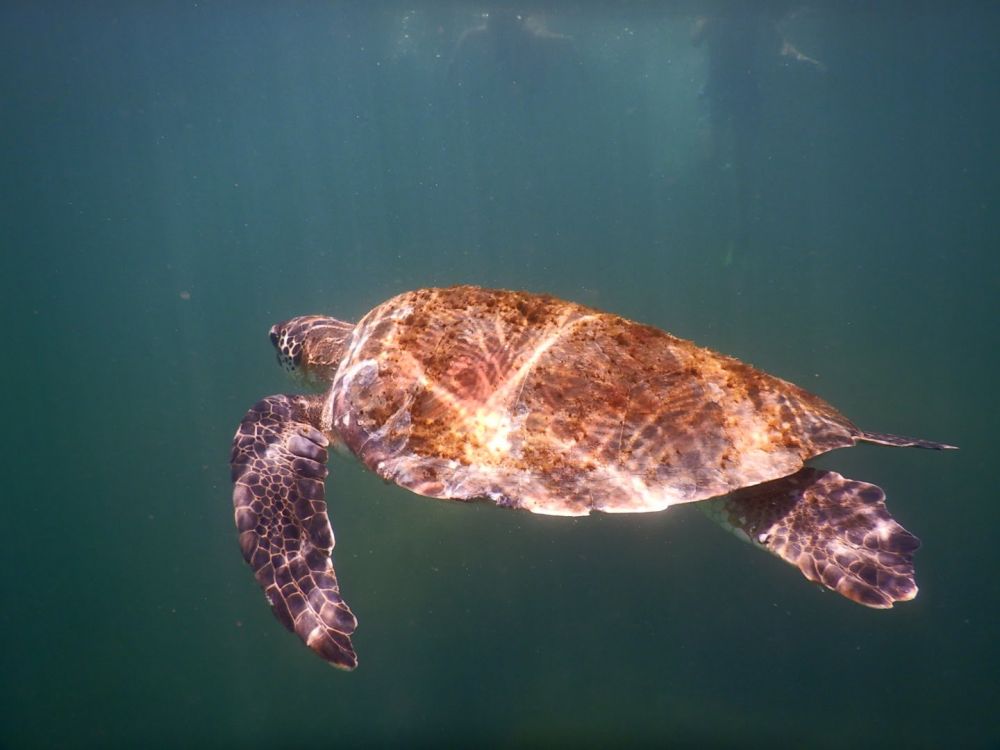
Ilha das Couves seems amazing! But I read the other day about overtourism on the Island, and the lack of organization there. What do you know about this, and what are the biggest challenges regarding tourism on the island?
Yes, unfortunately this is true. Ilha das Couves has been receiving far more tourists than it should be. I do not even take tourists there in the high season, because it’s almost unbearable. The tourist sees a photo of a dreamy island online, but faces another reality once they arrive. Ilha das Couves is a wonderful place, and deserves more attention, due to its exploration as a tourist destination, and the environmental impact of this. I think one way to control the amount of people on the island is by increasing the price of the boat to get there, which is now very cheap, or stipulating a maximum number of people per day. This is delicate work that the secretary of tourism has to do, along with the community of Picinguaba, which is responsible for the island.
On behalf of Viare, thank you Poti for the partnership and availability for this chat!
Thinking of including Ubatuba on your Brazil itinerary? We can help you with that!

